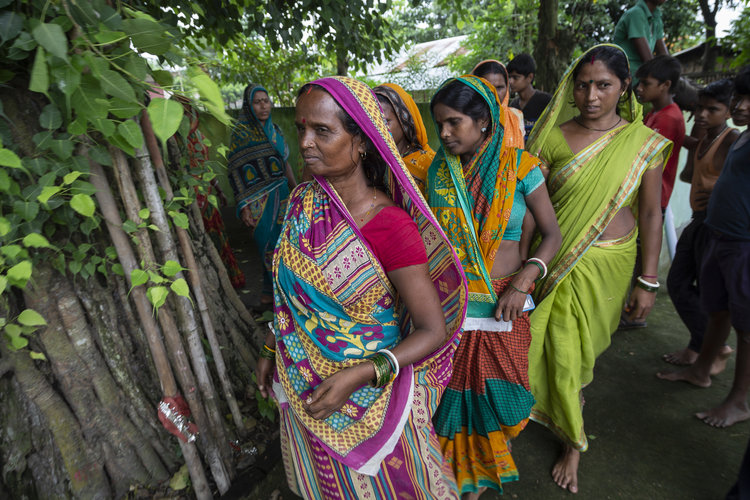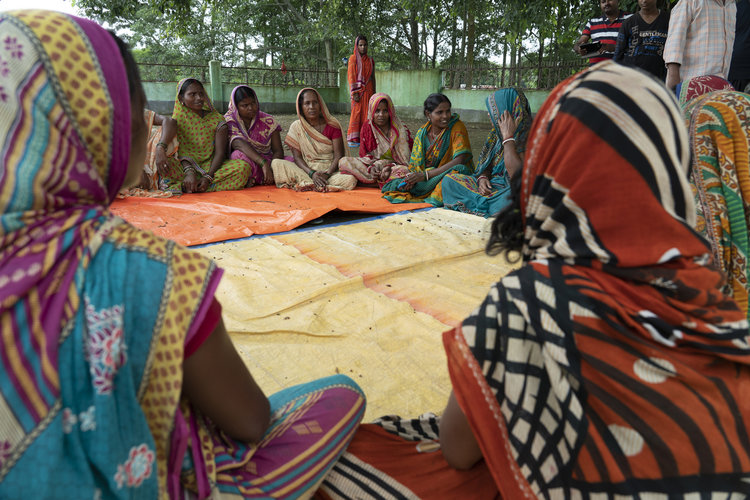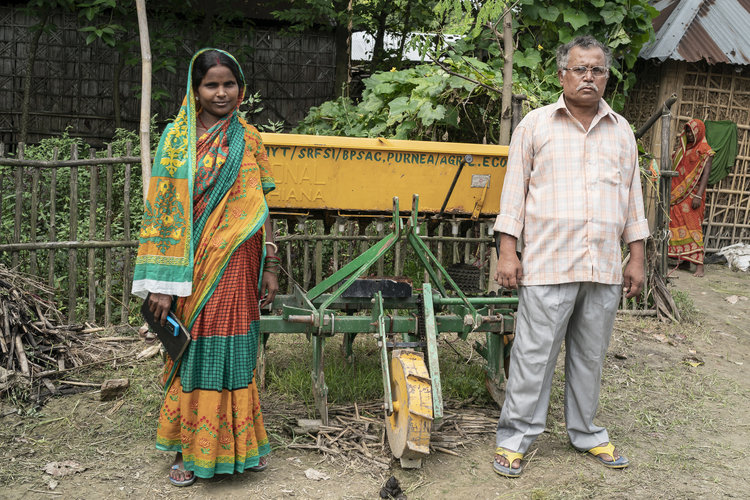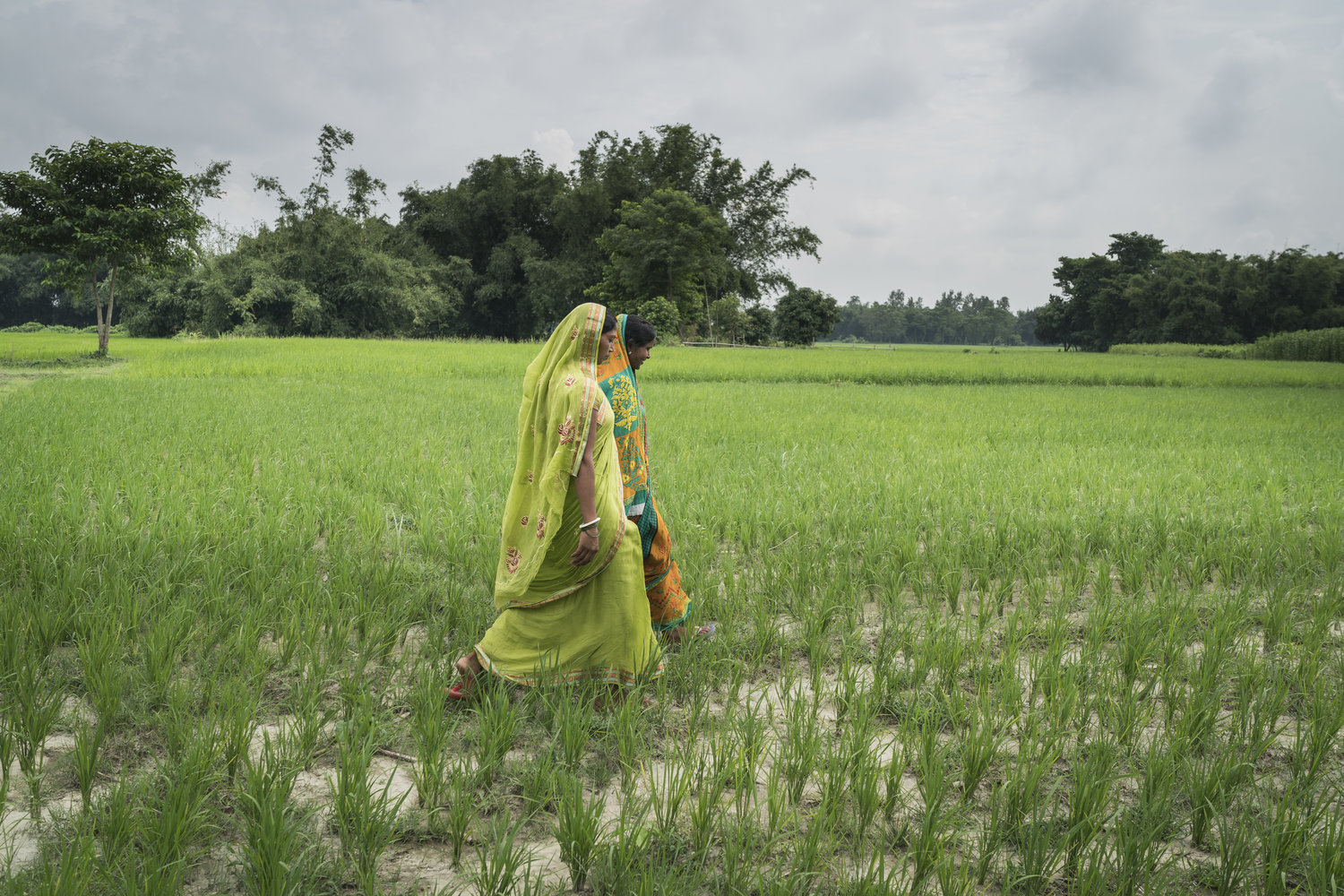Sulochana’s Story
How are women like Sulochana playing a greater role in promoting sustainable farming?
In the North Indian state of Bihar, a group of farmers hold a meeting in Uday Nagar village. Dressed colourfully and sitting in a circle, many have travelled from neighbouring villages to attend the regular gathering.
Thirty-year-old mother of two Sulochana Devi isn’t the tallest nor loudest, yet she captures the others’ attention as she speaks. Over the past few years Sulochana has emerged as a champion of conservation agriculture in her community.


Farming alongside her husband Dilip Biswas, the couple were among the first farmers in Bihar to actively adopt the conservation agriculture practices they learnt when partnering with the Sustainable and Resilient Farming Systems Intensification (SRFSI) project.
SFSRI is led by the International Centre for Maize and Wheat Improvement (CIMMYT), who have worked in collaboration with local partners including Bihar Agricultural University (BAU), Jeevika and Green AgRevolution, and a number of farming communities across the state.
As part of the project, farmers were introduced to conservation agriculture principles that include minimizing soil disturbance, ensuring soil cover and diversification through crop rotation. This new suite of practices introduced to farmers was different to how many had farmed in the past. Sulochana remembers how different the former farming practices are “in the past we would sow in mud. This way a lot of labour is wasted and it was very expensive too.”
In recent years Sulochana’s husband Dilip has suffered from chronic foot infections, limiting his ability to work. As a result, Sulochana began leading the work on the family farm and jointly making decisions with her husband. Conservation agriculture has had clear benefits for the husband and wife duo, especially in terms of savings of water and labour and greater yields and profits.
Sulochana recalls “we can save water, time and labour. And the environment is preserved. We get the benefit. Because labour is less. Yield is that much. Then it is a benefit. Isn’t it?”

Incrementally, Sulochana and Dilip have increased the amount of land they dedicate to conservation agriculture. In 2019 they plan to dedicate all their fields using these practices.
Under the SRFSI project, more than 3,000 on-farm trials were conducted to identify the most suitable conservation agriculture farming techniques in eight locations across the Eastern Gangetic Plains of Nepal, India and Bangladesh. Over 100,000 farmers are testing or adopting sustainable agricultural technologies, a third of whom are women like Sulochana.
SRFSI is part of the Australian Centre for International Agricultural Research (ACIAR) program funded by the Australian Government’s Department of Foreign Affairs and Trade Sustainable Development Investment Portfolio (SDIP). The ACIAR SDIP contribution is working to promote sustainable food systems in the Eastern Gangetic Plains of India, Bangladesh and Nepal, as part of a wider portfolio approach to improve food, energy and water security in South Asia.
